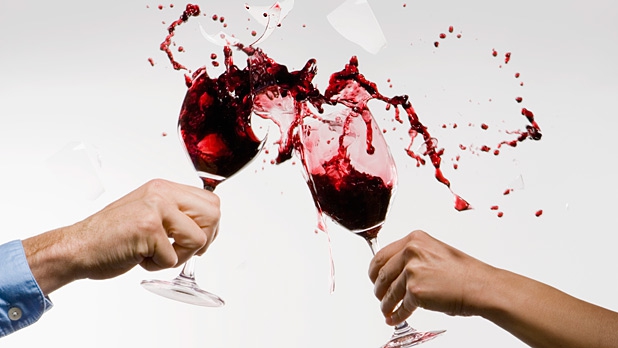A noisy debate is currently going on inside the U.S. wine scene. It was touched off by a tasting at the Symposium of Professional Wine Writers held recently in Napa.
Here’s reporting from David White at Terroirist and Alder Yarrow at Vinography. The gist as I understand it — there was a tasting of lesser known, way off the beaten path wines from Napa organized by Jon Bonne of the SF Chronicle and Eric Asimov of the NY Times. Yarrow was there and called the tasting “interesting,” nothing more or less.
The tasting was strong attacked by Robert Parker of the Wine Advocate (who did not attend), and fellow Advocate writers Lisa Perotti-Brown and Jeb Dunnuck, who did attend. The reason for such vehemence wasn’t clear, and it turns out that one of the wines had earlier been highly rated by the Wine Advocate itself.
W. Blake Gray at the Gray Report has a theory about why the Advocate attacked. He sees it as jostling for the China market (the Advocate was sold in late 2012), and for positioning in a post-Parker wine critic world:
When Parker retires, there will be a scrum to be the most influential critical voice on wine in the US, but also in China.
Perrotti-Brown and her bosses aren’t particularly worried about Wine Spectator, Antonio Galloni or James Suckling. They are all doing the same thing the Advocate does. Competing against them is like trying to win an election.
The leanness movement, with Asimov as its figurehead: that’s a revolution. They’re not trying to win power through using the same system; they’re trying to eliminate the 100-point system, and even the very concept of critics telling people which wines are best. Asimov is thoughtful and intellectually generous, but many commenters with similar views are, as revolutionaries tend to be, loud and tediously dogmatic.
If the Advocate wants to establish dominance in China, it needs not only to parade around its figurehead, but to ensure that the system he established takes firm root — not an easy task in a country that has its own long-established ideas about food and drink.
It’s easier to understand the Advocate’s actions viewed in this light. It’s doubtful that three Advocate critics would pile onto a tasting of wines that Galloni or Suckling likes; that’s a country-club disagreement. But when your grip on power feels tenuous, and you hear people shouting slogans outside your door, perhaps it’s time to call in the tanks.
There’s an interesting interpretation, and one that suggests that this wine world struggle will continue. Of course the vast majority of consumers will never hear about this version of inside baseball, wine style. So we’ll see if any of this eventually filters down to and affects buying patterns.
In other wine news, D.C. is far and away the leader in U.S. wine consumption per capita. According to BusinessInsider, D.C. residents consume almost 26 liters of wines annually, with New Hampshire residents a distant second at 19.6. Since D.C. is a small area, I combined its ranking with those of Virginia and Maryland to get a metro-wide number. That number comes it at 15.1, placing the DMV behind only Massachusetts, Vermont and New Hampshire.
Let’s keep that metric rising — do your part in 2014!
